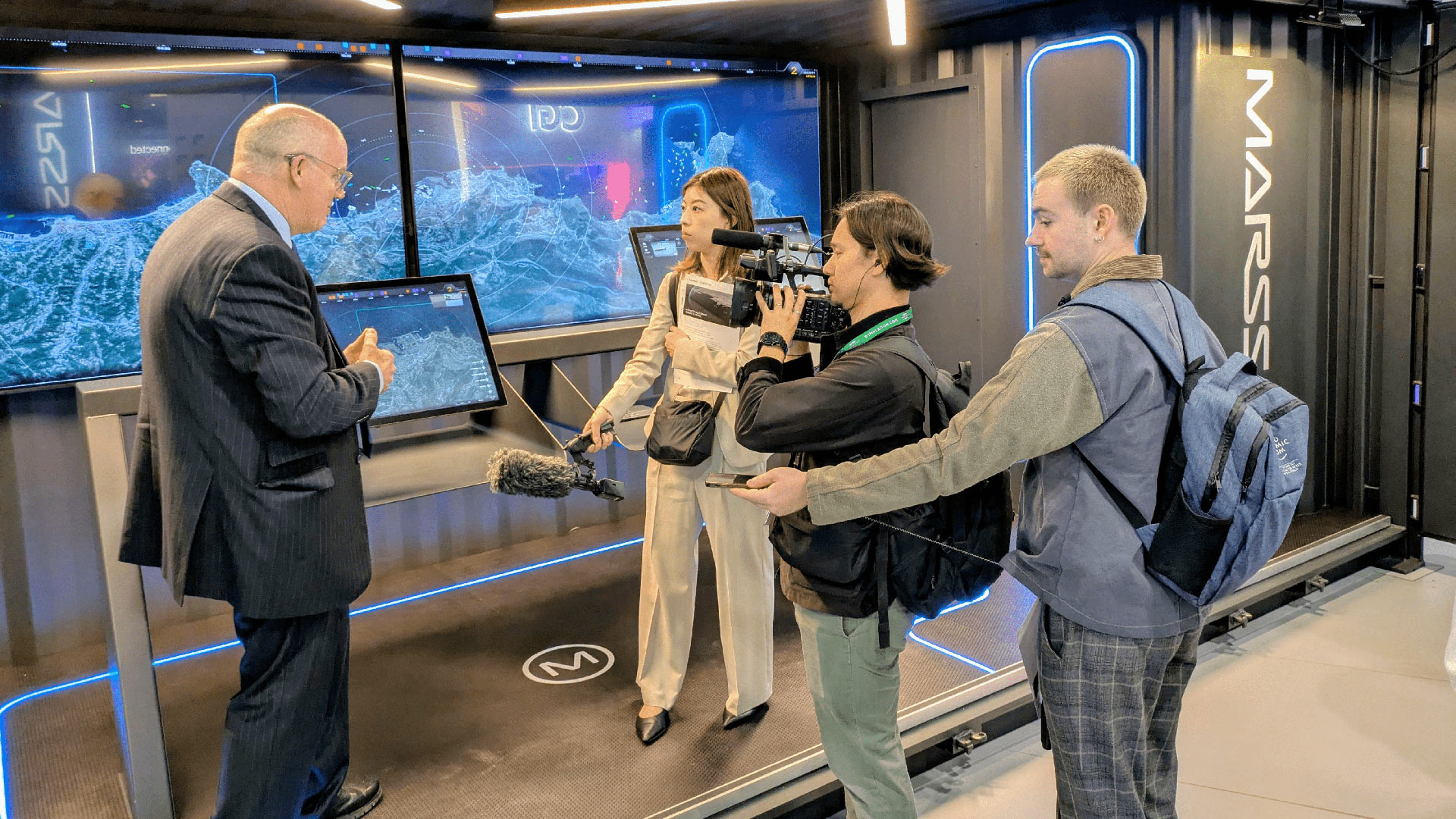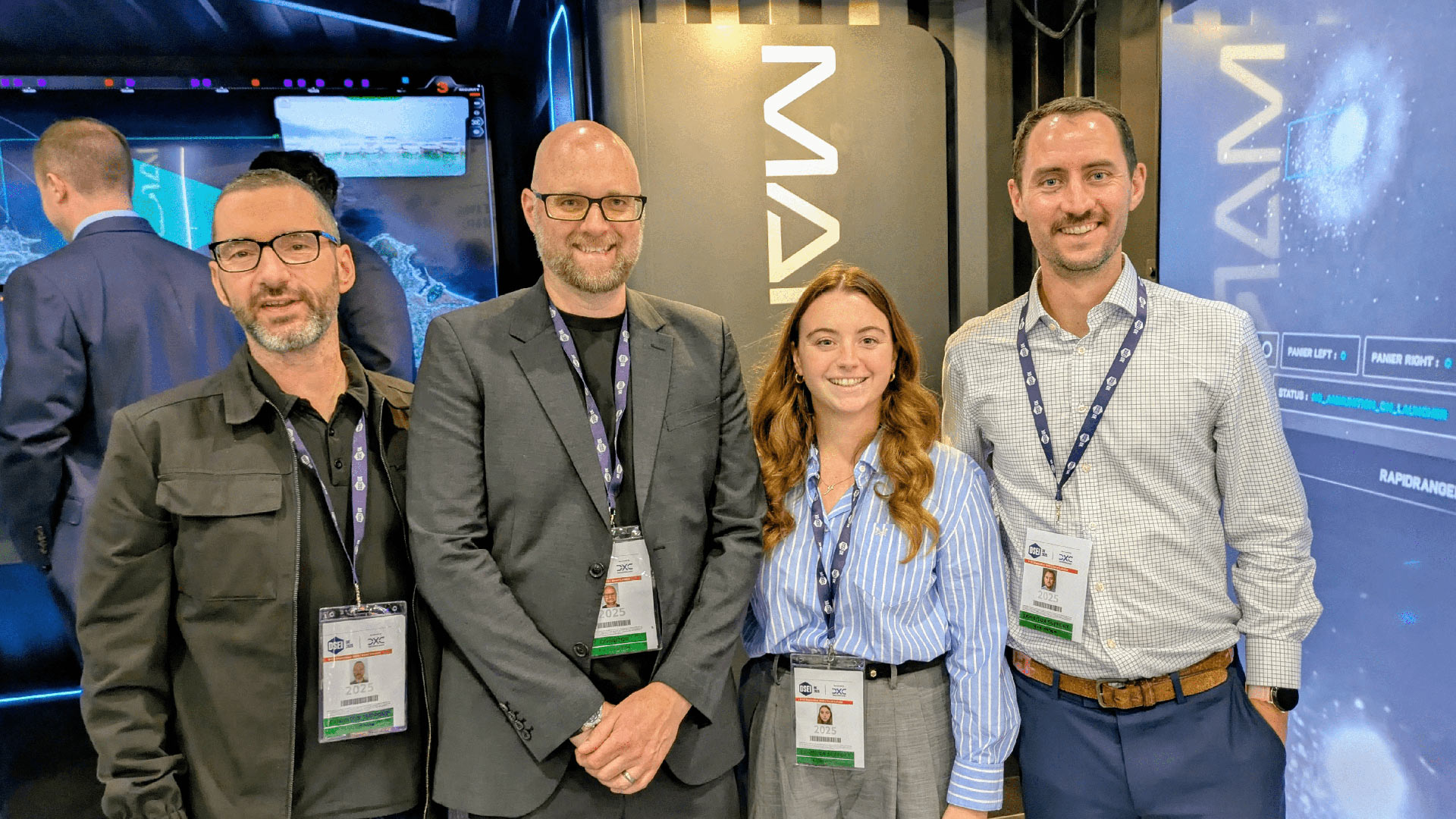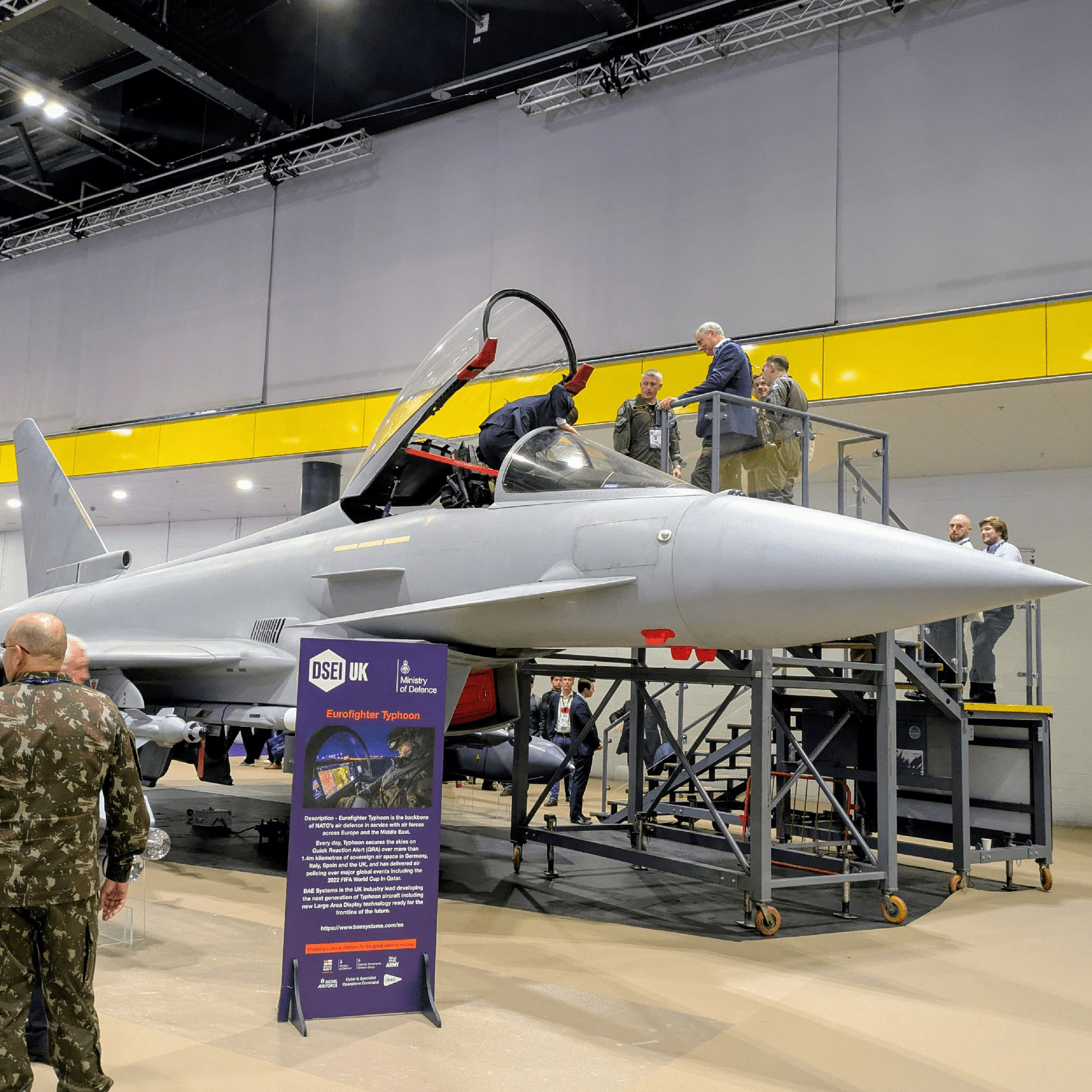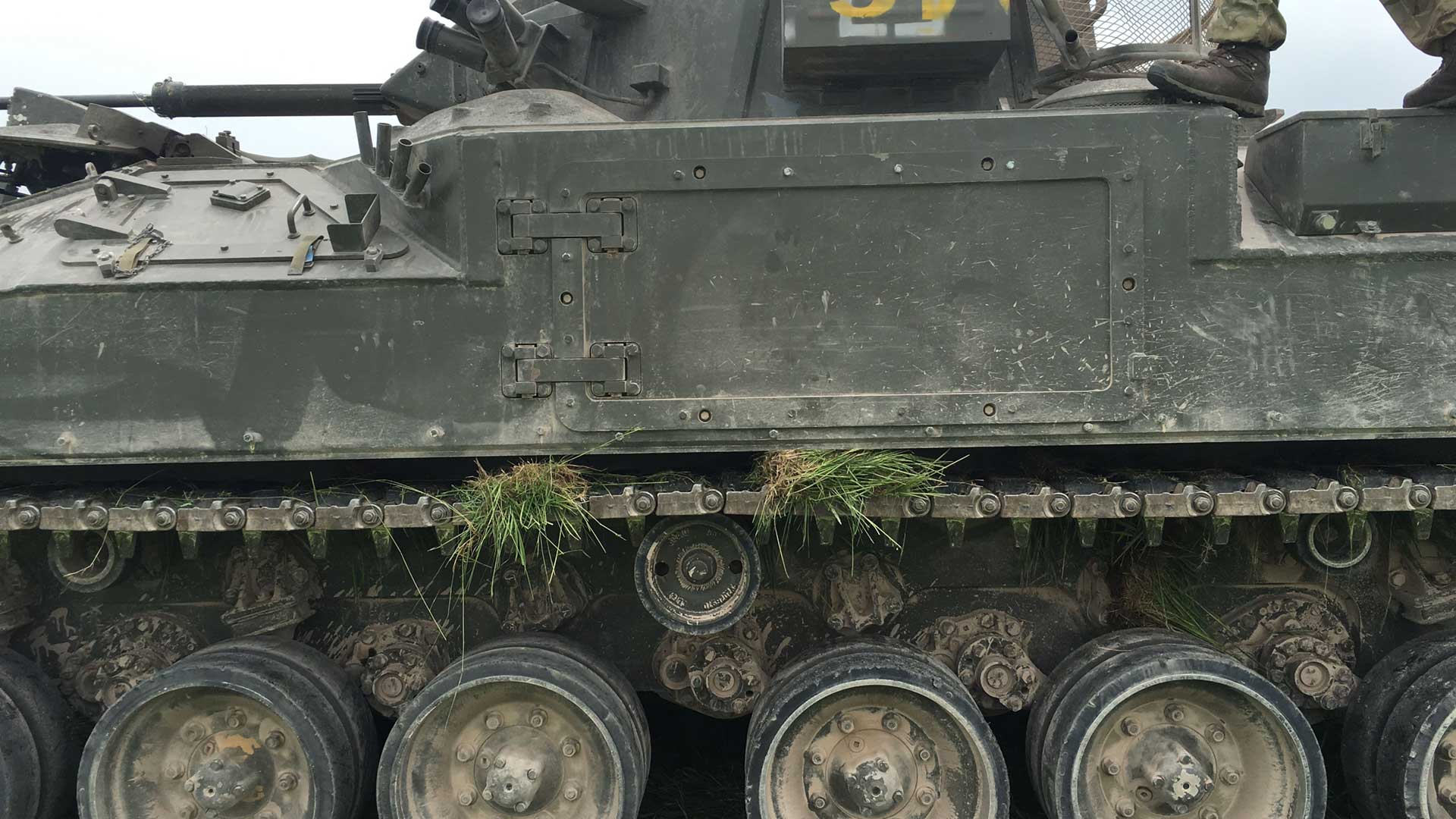Steven Knowles, Dir. of Mkg & BD
MY FIRST DEFENCE TRADE SHOW
So, I attended my first Defence Trade Show.
DSEI - Defence & Security Equipment International - took place at London’s Excel in September 2025, and is a flagship, biennial trade show in the sector.
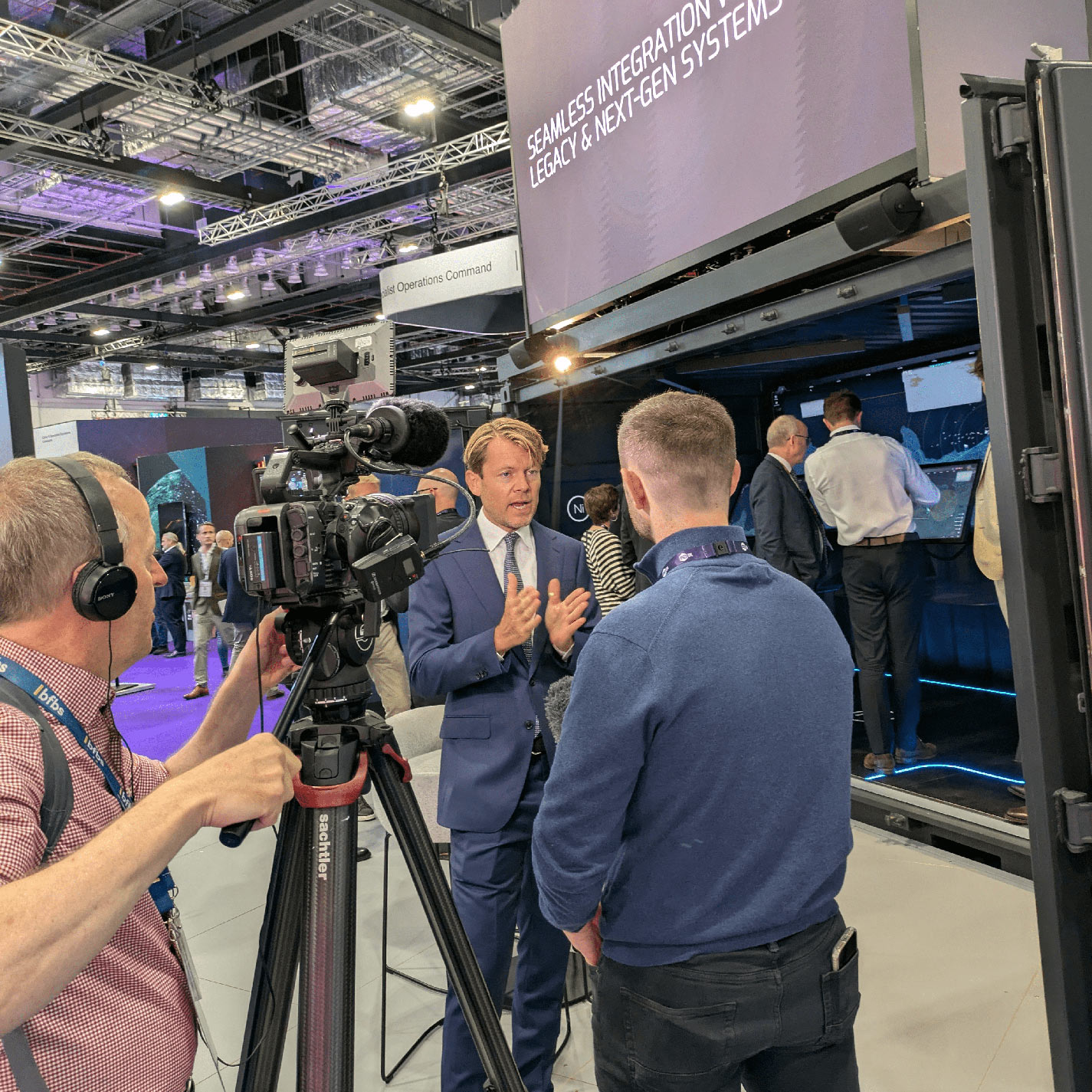
PRECONCEPTIONS
Travelling down, I have to say, I was a bit reluctant. I wrote an honest list of my own preconceptions:
Huge event.
Huge sector.
Military.
Lots of money involved.
Ingenuity.
Delegates from many nations.
What are they looking for - to be stronger than their neighbour, presumably?
What business gets done?
Is ‘Defence & Security’ merely a euphemism?
Is every stand only going to be hawking bullets, guns, missiles and tanks?
Is this all a shop window for barbarism?
The UK Government didn’t seem to think so, announcing its Defence Industrial Strategy the week before the show, promising better equipped British armed forces and £182million for the UK’s defence talent pipeline, including five defence-focused Technical Excellence Colleges.

It also has to be reflected that we have several clients who were exhibiting at DSEI, and we know what they provide and produce - AI-enhanced radar technology to detect drones and other threats. Man overboard systems. Defensive barriers, against both human and natural forces. Expeditionary protection.
And that is probably the crux of the matter. Defence is defence if someone or something is, or could be, attacking your safety or security. One could reasonably argue that humanity would be better off without all of it, but one would also have to argue that humanity has literally, since the times of flint tools and hunting to eat, decided to use those hunting tools to best our neighbours and take what they have. So one has to defend oneself. Downing tools and opting out isn’t really an option, and hasn’t been since the dawn of time.
This has escalated, on repeat, through the history of humanity - the wars, the conquests, gaining one-upmanship via new technologies and innovations. The Roman ‘testudo’ (tortoise formation). The longbow. Gunpowder. By the time we got to the Cold War, the consequences of nuclear attack from either the US or the USSR on the other - i.e. one’s own nuclear annihilation - were so extreme as to cause a stalemate. Is it the best hope for humanity that nations don’t attack other nations, because they are worried about the consequences? From the attackee, their allies and their capabilities?
I am going to stick my neck out and say that this isn’t the forum to solve such species-wide issues, but I do know that what I saw at DSEI, alongside the armaments, was a massive and impressive range of ingenuity in technology, in communications, and in human endeavour against the elements.

Businesses that are built on hydraulic lifts and circuit boards, on cables and monitors, protection shelters, radar detection systems, waterproofing, weatherproofing, tyres.
I saw forward-thinking exhibits from household names like Saab, Caterpillar, Fujitsu, Airbus, DHL, Garmin, Ford, Motorola and Nokia.
I heard speeches from representatives of NATO, The Department of Science, Innovation & Technology, and UK Space Command.
John Healey MP, Secretary of State for Defence, spoke too.
There is a lot going on in the world that rightly turns good people’s stomachs, and yet we also know that some of our clients supply Ukraine with defensive equipment in their struggle against an aggressive neighbour. If bad guys are equipped, don’t good guys need to be equipped better? We understand that NATO exists to unite European and North American countries, in a treaty that aims to guarantee freedom and security, and ultimately prevent conflict - and for this they do need deterrents.
The UK’s £30billion deal with Norway to build and supply 26 frigates, also announced on the eve of the trade show and another indicator of the sheer size of this industry, will support 4,000 UK jobs.
Keeping safe and unlocking potential?
Meanwhile Bridget Phillipson, the UK Secretary of State for Education - so someone whose government role is entirely about overseeing valid directions for UK skills - at the Defence Industrial Strategy launch said that “the defence sector doesn’t just keep British people safe; it drives growth and unlocks opportunities for young people to learn pioneering skills and pursue a great career.”
Humans continue to do terrible things to other humans, and as such there is good reason for reluctance to get involved with certain elements of this global sector.
However, on other points - that the defence sector is at the cutting edge of technology and the sharp end of skills, and that advances tend to roll out to wider society, that there are aspects of the sector that we need to keep us safe against the not-going-anywhere other side of it, and in the fact that it is a buoyant sector that will generate jobs - I don’t think there can be too much argument?
Eye opening, certainly.
